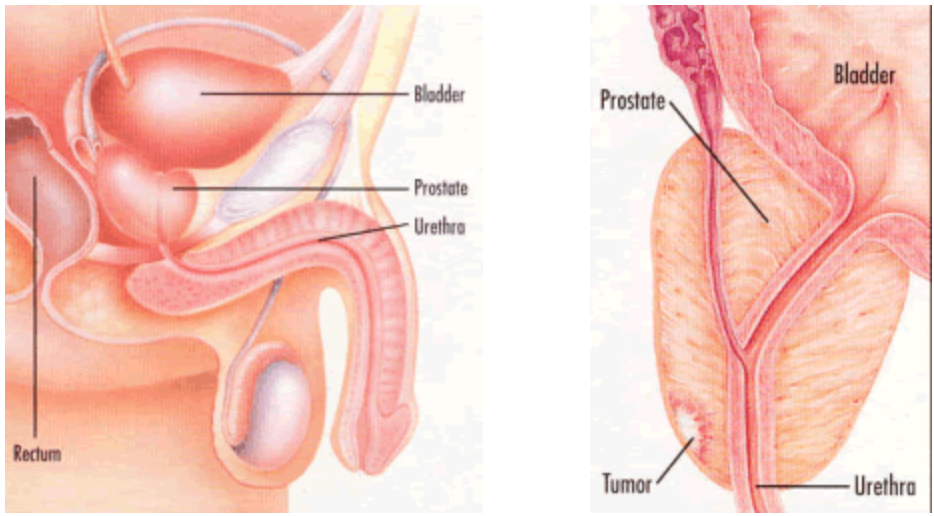Table of Contents
Toggle6 Foods to Boost Prostate Health
An essential component of the male reproductive system is the prostate gland. Throughout a man’s lifespan, it continues to develop and change until it is about the size of a walnut. All men should place the highest priority on maintaining their prostate health if they wish to live long, healthy lives.
Your diet has a big impact on your overall health, including your prostate health.
You may be able to lower your risk of prostate issues, including prostate cancer, by including nutritious foods that are good for your prostate in your diet.
The American Cancer Society reports that 1 in 8 American men may develop prostate disease, making it the most prevalent cancer in men.
Although the precise effect of diet in prostate health is unclear, there are a number of possibilities. Some scientists think that the Western diet’s excessive fat and sugar content may have a role in the rising incidence of prostate cancer.
An increased risk of developing prostate cancer has been linked in several studies to diets heavy in dairy products as well as high total calcium intake from food and supplements.
You should continue to visit your doctor for routine prostate cancer screenings while changing your diet, but you may start promoting the health of your prostate by including the next 6 foods in your meals.
1. Tomatoes May Help!
Lycopene is a potent antioxidant that is present in a number of fruits and vegetables, including tomatoes. According to several studies, eating a diet rich in lycopene may help lower the chance of getting prostate cancer. Although further trials are required to show a benefit, an analysis of 24 studies found that men who consumed more tomatoes had a lower risk of prostate cancer. Lycopene may lessen cell damage and hinder the growth of cancerous cells. Being an antioxidant, it shields cells from harm.
Lycopene is difficult for your body to absorb because it is strongly attached to the cell walls of uncooked tomatoes. Products made from cooked or puréed tomatoes might be preferable, such as the following:
- tomato juice
- Italian sauce
- dried-up tomatoes
- tomato nectar
Another great option is to start each day with a glass of simple tomato juice. Simply choose a low-sodium variety.
2. Broccoli May Help!
Broccoli is a vegetable that includes a variety of sophisticated compounds that could offer some people cancer protection.
According to some research, eating more cruciferous vegetables, which include broccoli, may reduce your risk of developing prostate cancer.
Researchers contend that certain phytochemicals in these veggies, such as the concentrated form of sulforaphane found in broccoli sprouts, selectively target and destroy cancer cells while sparing healthy, normal prostate cells from harm. The exact mechanisms are still unknown.
Kale, cauliflower, cabbage, and Brussels sprouts are some other cruciferous veggies.
Broccoli can be eaten raw or steamed, or you can use it to stir-fries, soups, and salads.
3. Green Tea
For thousands of years, people have consumed green tea for its therapeutic properties. Numerous investigations on its effects on cancer have been undertaken.
There is evidence that certain substances included in green tea may lower the risk of prostate cancer by affecting hormone signaling, cell death, and tumor formation. The following substances may help to explain why green tea is healthy.
derivatives of xanthines
Gallic acid epigallocatechin (EGCG)
Epicatechin
Start with substituting a cup of green tea for your morning cup of coffee if you enjoy the flavor.
4. Legumes and Soybeans
Beans, peanuts, and lentils are all classified as legumes. Phytoestrogens are biologically active plant chemicals found in legumes.
Among these phytoestrogens is the isoflavone. According to one analysis, those who consumed the most phytoestrogens had a 20% lower risk of prostate cancer than those who consumed the least of them.
Phytoestrogens may have anti-cancer effects due to their antioxidant qualities, impacts on hormone balance, and effects on cell death.
While more thorough research is still required, some studies have connected soybean isoflavones with a lower risk of prostate cancer.
According to the National Cancer Institute (NCI), soy consumption is associated with lower levels of prostate-specific antigen.
The prostate makes a protein called PSA. The PSA test, which gauges PSA levels in your blood, is used as a prostate cancer screening test.
Additionally, it appeared from this research that soy appeared to be more effective when consumed with other anti-cancer nutrients.
Make a black bean burger that is loaded with vegetables. As an alternative, healthy grain bread or vegetables go great with homemade hummus made from pureed chickpeas.
5. Pomegranate Juice
Pomegranates are a great source of antioxidants, just like green tea.
Because of its high concentration of antioxidants, pomegranate juice has a reputation as a super fruit. Antioxidants may aid in the prevention of oxidative stress-related chronic illnesses.
According to the NCI, pomegranate juice and some of its bioactive ingredients may help prevent prostate cancer cells from proliferating.
Pomegranate juice and extract have been shown to prevent the growth of some prostate cancer cells in animal and in vitro experiments; however, human trials are still lacking.
To sweeten your preferred salad, you may also use pomegranate seeds into your homemade salad dressing.
6. Fish May Help!
Omega-3 and omega-6 polyunsaturated fatty acids are the only necessary fatty acids that can only be obtained through diet. The body does not synthesize them.
The typical Western diet is high in omega-6 fatty acids but low in omega-3 fatty acids. Omega-3 and omega-6 fatty acid equilibrium is associated with improved health outcomes.
Conclusion About The Prostate Massage Manual
More research, particularly on humans, is required, according to several evaluations, even if there may be a connection between increased omega-3 fat consumption and a lower risk of high-grade prostate cancer and prostate cancer death.
Other health advantages of fatty fish are numerous. To improve your intake of omega-3s, try eating fatty fish that can be found in cold waters. These consist of:
Product Name: The Prostate Massage Manual: What Every Man Needs To Know For Better Prostate Health and Sexual Pleasure
All orders are protected by SSL encryption – the highest industry standard for online security from trusted vendors.


